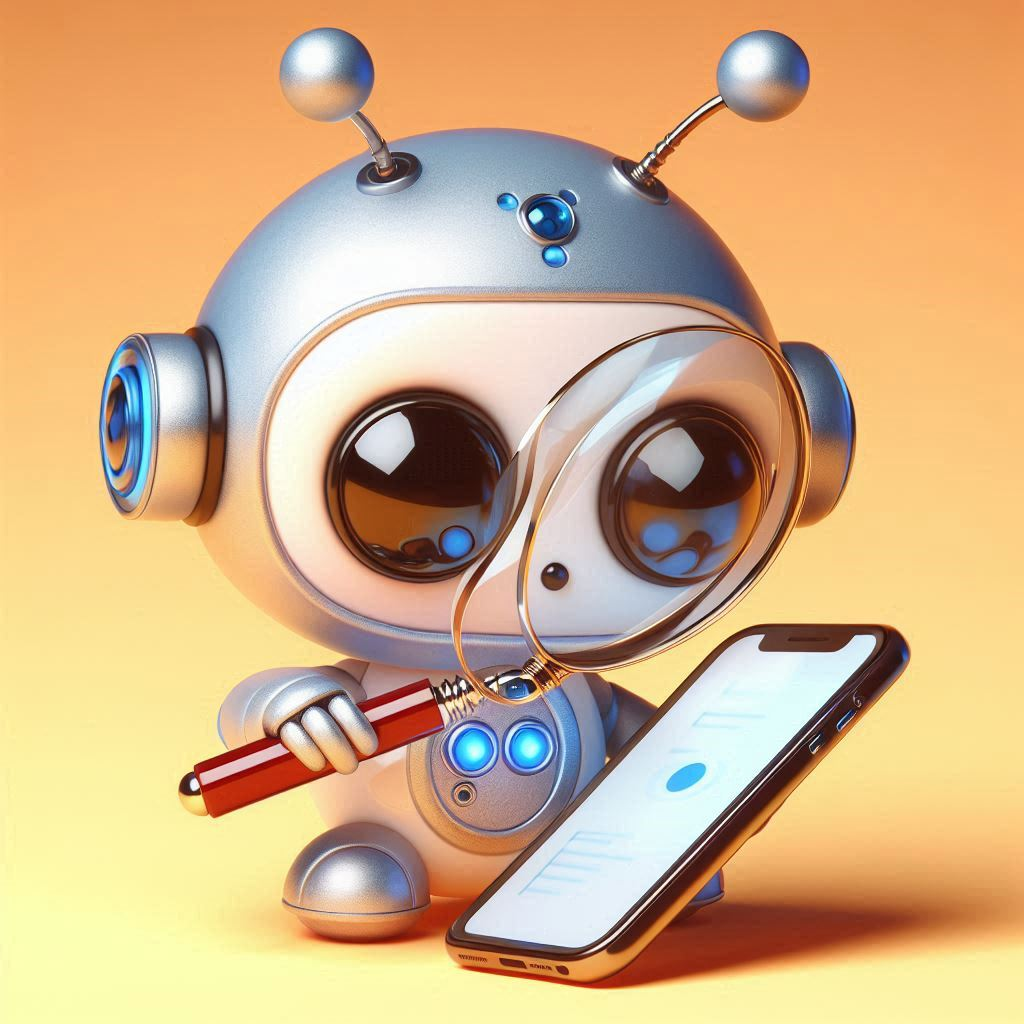Brands Forcing AI on Unwilling Users
Last week, Logitech announced a new wireless mouse, the Signature AI Edition M750. As a long-time user and fan of Logitech’s wireless mice, I was eager to see what improvements this latest model might bring. However, upon closer inspection, the M750 appears to be nearly identical to the previous model, the M650, with only one notable difference: a new button located below the scroll wheel, preprogrammed to launch the ChatGPT prompt builder from Logitech’s Options app. This minor addition raises questions about the necessity of releasing a new product with such minimal changes.

The M750, priced at $50, is $10 more expensive than the M650. Aside from the new button, the M750 includes two additional buttons on the left side of the mouse. The forward button launches dictation in Windows or macOS, and the back button opens ChatGPT within the Options+ app. Logitech claims that the two mice use different electronic components, but it is hard to see how these differences justify a new product release. If it weren’t for the trendy new AI feature, the M750 might not have been marketed as a new product at all.
Logitech’s AI Prompt Builder is an interesting new feature, albeit one that does not require the new mouse. It can be used with several existing Logitech mice and keyboards, including the popular MX Master 3S. The prompt builder allows users to quickly generate prompts for ChatGPT by entering text in the Options+ app, which then creates an appropriate prompt based on the user’s needs. This feature, which requires a ChatGPT account, could be helpful for users less familiar with creating prompts, though its utility for more experienced users is questionable.
The release of the M750 and the AI Prompt Builder highlights a growing trend among tech companies to integrate AI features into their products. Logitech is not alone in this endeavour. The company Nothing has also introduced AI features in its devices, allowing users to access ChatGPT by pinching their earbuds. This feature requires the latest Nothing OS and a Nothing phone with ChatGPT installed, with plans to expand to additional phones via software updates. These integrations aim to provide instant access to AI capabilities, though it is unclear how many users actually requested such features.
Microsoft has also jumped on the AI bandwagon with the introduction of a new key on Windows keyboards for the first time since 1994. This Copilot button is designed to launch Microsoft’s AI assistant, though its necessity is debatable given that Copilot is still in beta and its best use cases are still being defined. The addition of the Copilot button may seem more like a marketing tactic than a meaningful improvement, especially considering that it replaces other useful keys like the Menu or right-Ctrl key.
The push to integrate AI features into consumer devices is not limited to these companies. The Humane AI Pin, for example, was recently criticised by reviewers, and AI peripherals like those from AI Shark are also making bold claims. AI Shark, founded by the former US CEO of GameShark, promises gaming peripherals that can adapt to users’ habits through AI. These products claim to use machine learning to offer real-time adjustments and strategic advice, though the details of how these features work are unclear.
AI Shark debuted at CES with a range of products including a gaming mouse that adjusts DPI settings in real-time, a keyboard that suggests key remaps, and a headset that provides verbal cues based on in-game audio patterns. However, these products currently appear to be in the concept stage, with images on the AI Shark website showing logos poorly photoshopped onto existing products. The company’s CEO, Todd Hays, has stated that these peripherals will include Tensor Processing Units (TPUs) optimised for machine learning, but the lack of concrete demonstrations makes their claims hard to believe.
The trend of adding AI features to consumer devices raises important questions about their actual benefits. While AI can certainly enhance certain functionalities, there is a risk that companies are using the buzz around AI to market products with questionable value. The MSI monitor with built-in AI to assist League of Legends players and AI Shark’s peripherals are examples of products that promise significant improvements through AI but offer little evidence to back up their claims.
Consumers should remain sceptical of the wave of AI marketing hype likely to continue over the next few years. While some AI features may genuinely improve the user experience, others may be more about jumping on the AI bandwagon than delivering real value. The Humane AI Pin, for example, has already lost favour compared to its competitor Rabbit R1, highlighting that not all AI gadgets will succeed in gaining consumer trust.
Ultimately, the integration of AI into consumer devices will continue to evolve, and it will be up to consumers to discern which features offer real benefits and which are simply marketing ploys. While the potential for AI to enhance technology is exciting, it is important to approach these new features with a healthy dose of scepticism and demand clear demonstrations of their value. As the tech industry navigates this new frontier, consumers must stay informed and critical of the claims made by companies eager to capitalise on the AI trend.
The potential for AI to transform technology is undeniable. It offers the promise of more personalised, responsive, and intelligent devices that can adapt to individual user needs and preferences. However, this potential also brings with it the challenge of distinguishing between genuinely innovative uses of AI and those that are little more than marketing gimmicks. As AI continues to be a significant selling point in tech products, the market will likely see a flood of new devices claiming to leverage AI to offer superior performance and functionality. This makes it all the more crucial for consumers to critically evaluate these claims and look beyond the buzzwords.
Moreover, the ethical implications of AI integration cannot be overlooked. As AI systems become more integrated into everyday devices, concerns about privacy, data security, and user autonomy will become increasingly pertinent. Companies must be transparent about how they use AI and the data they collect, ensuring that they adhere to ethical standards and protect user information. Consumers should demand this transparency and hold companies accountable for their AI practices.
Furthermore, the rise of AI in consumer technology raises questions about accessibility and inclusivity. While AI has the potential to make technology more accessible, particularly for individuals with disabilities, it also runs the risk of creating new barriers. For instance, if AI features are not designed with diverse user needs in mind, they may inadvertently exclude certain groups of people. It is essential for companies to consider a wide range of user experiences when developing AI features to ensure that they are beneficial for all users.
In the gaming industry, where AI promises to revolutionise the way players interact with games and peripherals, the stakes are particularly high. AI-driven enhancements could lead to more immersive and engaging gaming experiences, but they also introduce the potential for unfair advantages and ethical dilemmas. For example, AI that helps players predict and counter opponents’ moves could be seen as a form of cheating, undermining the integrity of competitive gaming. It is crucial for the gaming community, including developers, players, and regulators, to navigate these challenges thoughtfully to maintain fair and enjoyable gaming environments.
Looking ahead, the relationship between AI and consumer technology is likely to deepen. Innovations in AI will continue to push the boundaries of what is possible, leading to smarter and more intuitive devices. However, as this relationship evolves, it is vital for consumers to remain vigilant and informed. By critically assessing the claims made by tech companies and advocating for ethical and inclusive AI practices, consumers can help shape a future where AI genuinely enhances our lives rather than simply serving as a trendy marketing tool.
In conclusion, the recent trends in AI integration into consumer technology, exemplified by Logitech’s M750 mouse and other similar products, underscore the need for a balanced and critical approach. While AI holds great promise for advancing technology, it is essential to differentiate between genuine innovation and superficial enhancements. By staying informed, demanding transparency, and considering the ethical implications of AI, consumers can ensure that the technology they adopt truly adds value to their lives. As we move forward into an increasingly AI-driven world, a discerning and thoughtful approach will be key to harnessing the full potential of artificial intelligence in a way that benefits all.
for all my daily news and tips on AI, Emerging technologies at the intersection of humans, just sign up for my FREE newsletter at www.robotpigeon.be






